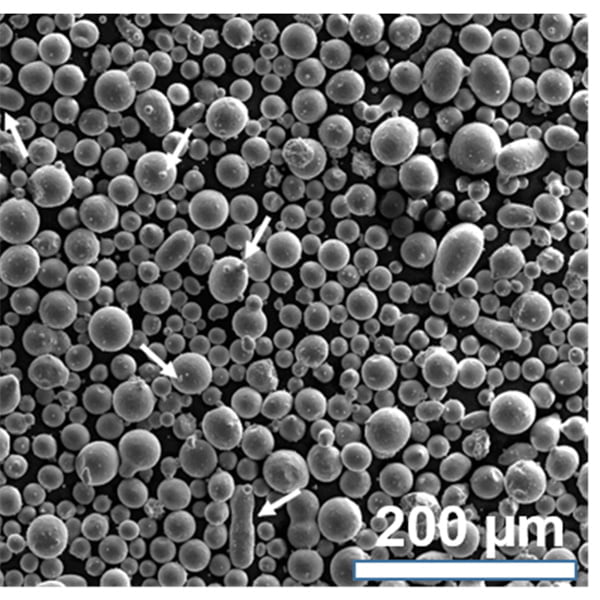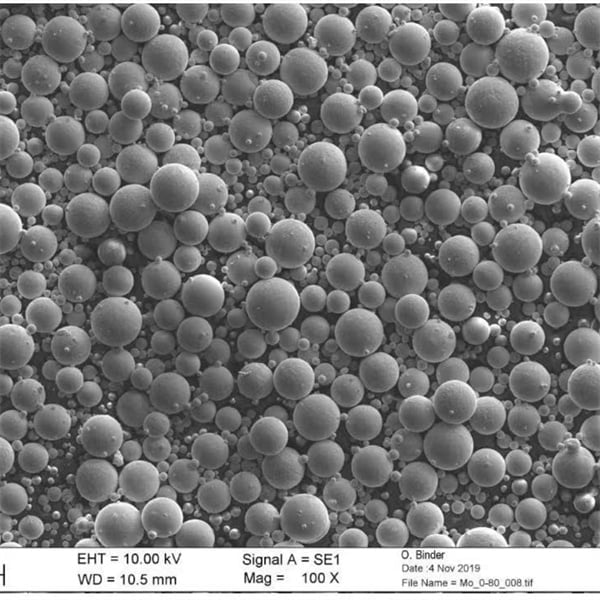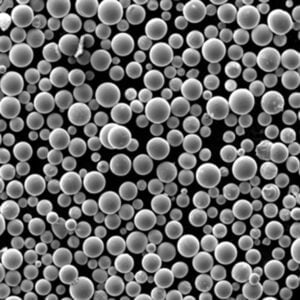Metal Powder for Automotive
Table of Contents
Overview
Metal powders play a pivotal role in the automotive industry, facilitating advancements in manufacturing techniques, performance improvements, and cost reduction. These finely divided metals are used in powder metallurgy, a method that enables the creation of complex shapes and unique material properties unattainable through traditional methods. This article delves into the intricacies of metal powders used in automotive applications, highlighting specific models, their compositions, properties, and uses.
Types, Composition, Properties, and Characteristics of Metal Powders for Automotive
Metal powders come in various types, each with unique compositions and characteristics tailored for specific applications in the automotive sector. Here, we detail ten prominent metal powder models commonly used.
| Metal Powder Model | Composition | Properties | Characteristics |
|---|---|---|---|
| Iron Powder (IP1000) | Pure iron | High density, magnetic | Excellent for structural components |
| Copper Powder (Cu100) | Pure copper | High electrical conductivity | Used in electrical connectors |
| Aluminum Powder (Al300) | Pure aluminum | Lightweight, high strength | Ideal for lightweight parts |
| Stainless Steel Powder (SS316) | Fe-Cr-Ni-Mo alloy | Corrosion resistant, high strength | Perfect for exhaust systems |
| Nickel Powder (Ni200) | Pure nickel | High temperature resistance | Used in turbocharger components |
| Titanium Powder (Ti6Al4V) | Ti-Al-V alloy | Lightweight, high strength-to-weight ratio | Ideal for engine parts |
| Cobalt-Chrome Powder (CoCrMo) | Co-Cr-Mo alloy | Wear resistance, biocompatibility | Used in fuel injectors |
| Tungsten Powder (W) | Pure tungsten | High density, high melting point | Suitable for heavy-duty applications |
| Bronze Powder (Cu-Sn) | Copper-Tin alloy | Low friction, wear resistance | Used in bearings and bushings |
| Magnesium Powder (Mg) | Pure magnesium | Extremely lightweight, moderate strength | Ideal for weight-sensitive components |

Applications of Metal Powder for Automotive
The unique properties of metal powders make them indispensable in various automotive applications. Below, we explore how different metal powders are utilized across the industry.
| Application | Metal Powder Used | Reason for Use |
|---|---|---|
| Engine Components | Titanium Powder (Ti6Al4V) | High strength-to-weight ratio |
| Electrical Connectors | Copper Powder (Cu100) | High electrical conductivity |
| Exhaust Systems | Stainless Steel Powder (SS316) | Corrosion resistance |
| Fuel Injectors | Cobalt-Chrome Powder (CoCrMo) | Wear resistance |
| Bearings and Bushings | Bronze Powder (Cu-Sn) | Low friction, wear resistance |
| Turbochargers | Nickel Powder (Ni200) | High temperature resistance |
| Structural Components | Iron Powder (IP1000) | High density, magnetic properties |
| Lightweight Parts | Aluminum Powder (Al300) | Lightweight, high strength |
| Heavy-duty Applications | Tungsten Powder (W) | High density, high melting point |
| Weight-sensitive Components | Magnesium Powder (Mg) | Extremely lightweight, moderate strength |
Specifications, Sizes, Grades, and Standards
Understanding the specifications, sizes, grades, and standards of metal powders is crucial for selecting the right material for a given application. Here’s a detailed look at these aspects.
| Metal Powder Model | Specifications | Sizes (Microns) | Grades | Standards |
|---|---|---|---|---|
| Iron Powder (IP1000) | ASTM B783 | 50-150 | IP1000, IP2000 | ASTM, ISO |
| Copper Powder (Cu100) | ASTM B188 | 20-100 | Cu100, Cu200 | ASTM, ISO |
| Aluminum Powder (Al300) | ASTM B329 | 10-100 | Al300, Al400 | ASTM, ISO |
| Stainless Steel Powder (SS316) | ASTM B837 | 15-75 | SS316, SS304 | ASTM, ISO |
| Nickel Powder (Ni200) | ASTM B700 | 5-50 | Ni200, Ni201 | ASTM, ISO |
| Titanium Powder (Ti6Al4V) | ASTM B348 | 20-150 | Ti6Al4V, Ti64 | ASTM, ISO |
| Cobalt-Chrome Powder (CoCrMo) | ASTM F75 | 10-70 | CoCrMo, CoCrFe | ASTM, ISO |
| Tungsten Powder (W) | ASTM B777 | 5-50 | W, W2 | ASTM, ISO |
| Bronze Powder (Cu-Sn) | ASTM B306 | 20-150 | CuSn10, CuSn12 | ASTM, ISO |
| Magnesium Powder (Mg) | ASTM B404 | 20-200 | Mg, MgA | ASTM, ISO |
Suppliers and Pricing Details
Selecting the right supplier is essential for ensuring quality and consistency. Here is a list of notable suppliers along with approximate pricing details.
| Supplier | Metal Powder Models | Price Range (per kg) | Location |
|---|---|---|---|
| Höganäs AB | Iron Powder (IP1000), Stainless Steel Powder (SS316) | $10 – $50 | Sweden |
| GKN Powder Metallurgy | Aluminum Powder (Al300), Nickel Powder (Ni200) | $20 – $100 | USA |
| Carpenter Technology | Titanium Powder (Ti6Al4V), Cobalt-Chrome Powder (CoCrMo) | $50 – $200 | USA |
| Sandvik AB | Tungsten Powder (W), Copper Powder (Cu100) | $30 – $150 | Sweden |
| AMETEK Specialty Metal Products | Bronze Powder (Cu-Sn), Magnesium Powder (Mg) | $15 – $80 | USA |
Comparing Pros and Cons, Advantages and Limitations
Every metal powder offers unique advantages and disadvantages depending on the application. Here’s a comparative analysis to help you choose the best option for your needs.
| Metal Powder Model | Advantages | Limitations |
|---|---|---|
| Iron Powder (IP1000) | High density, magnetic | Susceptible to corrosion |
| Copper Powder (Cu100) | High conductivity | Prone to oxidation |
| Aluminum Powder (Al300) | Lightweight, high strength | Lower melting point |
| Stainless Steel Powder (SS316) | Corrosion resistance | Higher cost |
| Nickel Powder (Ni200) | High temperature resistance | Expensive |
| Titanium Powder (Ti6Al4V) | High strength-to-weight ratio | Costly and complex processing |
| Cobalt-Chrome Powder (CoCrMo) | Wear resistance | High cost |
| Tungsten Powder (W) | High density, melting point | Difficult to process |
| Bronze Powder (Cu-Sn) | Low friction, wear resistance | Lower strength |
| Magnesium Powder (Mg) | Extremely lightweight | Highly reactive |

FAQ
What is metal powder used for in the automotive industry?
Metal powders are used for manufacturing various automotive components such as engine parts, electrical connectors, exhaust systems, bearings, bushings, and more due to their unique properties that improve performance and reduce costs.
Why is titanium powder preferred for engine components?
Titanium powder is preferred for engine components because it offers a high strength-to-weight ratio, which improves performance and efficiency while reducing the overall weight of the vehicle.
What are the benefits of using stainless steel powder in exhaust systems?
Stainless steel powder is beneficial in exhaust systems due to its excellent corrosion resistance, which ensures durability and longevity even under high-temperature conditions.
How do metal powders enhance the performance of turbochargers?
Metal powders like nickel are used in turbochargers due to their high temperature resistance, which ensures that the turbocharger components can withstand extreme operating conditions without degrading.
Can metal powders be recycled?
Yes, many metal powders can be recycled, which helps in reducing waste and conserving resources. The recycling process involves collecting, cleaning, and reprocessing the powders to be reused in various applications.
What factors should be considered when selecting a metal powder supplier?
When selecting a metal powder supplier, consider factors such as the quality and consistency of the powders, the supplier’s reputation, pricing, delivery times, and customer support.
How does powder metallurgy benefit the automotive industry?
Powder metallurgy benefits the automotive industry by allowing the production of complex shapes with precise dimensions, reducing material waste, and enabling the use of advanced materials that improve performance and reduce costs.
Are there any environmental concerns with using metal powders?
Environmental concerns with metal powders include the potential for airborne particles during handling and processing, which can be mitigated with proper safety measures. Additionally, recycling metal powders can help reduce environmental impact.
What are the key properties to consider when choosing a metal powder for automotive applications?
Key properties to consider include the powder’s density, conductivity, strength, corrosion resistance, temperature resistance, and wear resistance, depending on the specific application requirements.
Is there a significant cost difference between different types of metal powders?
Yes, there is a significant cost difference between different types of metal powders, primarily due to variations in raw material costs, processing complexity, and the specific properties of the powders. For example, titanium and nickel powders are generally more expensive than iron and copper powders.
In conclusion, metal powders are integral to the automotive industry, offering diverse applications and significant advantages. By understanding the unique properties, applications, and specifications of different metal powders, manufacturers can make informed decisions to enhance their products’ performance and efficiency.
Share On
MET3DP Technology Co., LTD is a leading provider of additive manufacturing solutions headquartered in Qingdao, China. Our company specializes in 3D printing equipment and high-performance metal powders for industrial applications.
Inquiry to get best price and customized Solution for your business!
Related Articles
About Met3DP
Recent Update
Our Product
CONTACT US
Any questions? Send us message now! We’ll serve your request with a whole team after receiving your message.

Metal Powders for 3D Printing and Additive Manufacturing
COMPANY
PRODUCT
cONTACT INFO
- Qingdao City, Shandong, China
- [email protected]
- [email protected]
- +86 19116340731

















